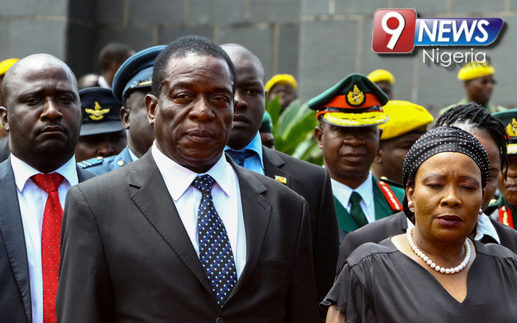In a deal certain to boost confidence in the downstream segment of Nigeria’s oil and gas industry, indigenous downstream company, NIPCO Plc, announced yesterday that it has acquired a 60 per cent stake in Mobil Oil Nigeria (MON) Plc from United States oil giant, ExxonMobil.
The transaction was seen by market watches as a continuation of the divestment strategy by international oil companies (IOCs) operating in the country.
NIPCO is also set to initiate the process of obtaining regulatory approval from the Securities and Exchange Commission (SEC) and the Nigerian Stock Exchange (NSE), having signed the sale and purchase agreement (SPA) with ExxonMobil.
News of the transaction did not affect the price of Mobil’s shares, which initially rose to N195.30 per share in early morning trading on the Nigerian bourse yesterday, before settling at N186 per share, the same price at which it closed on Tuesday.
Mobil Oil was incorporated in Nigeria in 1951, but got listed on the stock exchange in 1991, with ExxonMobil retaining a majority stake of 60 per cent.
The deal, the biggest in the downstream sector in recent years, is coming barely seven years after another US energy giant, Chevron Corporation, divested of its majority stake in Chevron Oil Nigeria Plc to another Nigerian indigenous downstream player, MRS Group.
Before MRS acquired Chevron Oil, Ocean and Oil Holdings in 2000 acquired the federal’s government 30 per cent stake in Unipetrol, and increased its stake in Unipetrol to 42 per cent in 2001.
In 2002, Unipetrol acquired a 60 per cent stake in Agip Nigeria, and rebranded in 2004 as Oando Plc.
With the sale of ExxonMobil’s stake in Mobil Oil to NIPCO, the French oil major, Total, is the only IOC in Nigeria that operates in the downstream sector with its controlling shares in Total Nigeria Plc.
The IOCs have also embarked on a wave of divestment of upstream assets to Nigerian independents in recent years, citing increasing challenges in the operating environment and the need to encourage the development of local capacity.
Confirming the acquisition of Mobil Oil by his company, the Managing Director of NIPCO, Mr. Venkataraman Venkatapathy, said in a statement yesterday that the transaction was agreed with the execution of the SPA with ExxonMobil.
Venkatapathy said with the signing of the SPA, his company would start the transition period and seek the approval of the NSE and SEC.
“The transition period will also enable NIPCO Plc to effectively manage a smooth and successful completion of the transaction. NIPCO considers this acquisition an important synergy.
“It is part of our strategic move to support NIPCO’s continuous growth and expansion of its Nigerian retail footprint. We are confident of adding tremendous value to MON and likewise MON will add huge value to NIPCO.
“In furtherance of this value addition, NIPCO will continue to maintain the Mobil brand on its retail outlets as well as continue to blend and sell the Mobil brand of lubricants under branding licence(s) from ExxonMobil,” Ventakapathy explained.
The NIPCO boss, who did not disclose the value of the deal, however expressed his company’s profound gratitude and appreciation to ExxonMobil for selecting NIPCO as the preferred bidder for the acquisition of MON.
“We wish to give every assurance to ExxonMobil that having entrusted us with this invaluable asset (MON), we will ensure full brand compliance with ExxonMobil’s global standards as well as rigorously sustain and follow ExxonMobil’s code of conduct/ethos and operational excellence,” Ventakatapathy added.
According to him, NIPCO’s expansion reinforces its implicit confidence in Nigeria’s future.
He noted that the Nigerian economy still provides a robust and premium return on investment, adding that his company was privileged to have been given this opportunity by ExxonMobil on its home ground.
“To our shareholders and stakeholders, we say welcome to a new dawn. A new era that will usher in stability, prosperity, sustainability and growth,” Ventakatapathy said.
Meanwhile, there was more cheering news for the oil sector yesterday, when crude oil prices rose by three per cent, with the U.S.’ West Texas Intermediate (WTI) hitting a 15-month high after the U.S. government reported a surprisingly large drop in domestic inventories for the sixth week.
Global benchmark Brent futures were up $1.21, or 2.3 per cent, at $52.89 a barrel after hitting a session peak of $53.14.
WTI oil futures were up $1.45, or 2.9 per cent, at $51.74 a barrel, after touching $51.93, the highest level since July 16, 2015, when WTI hit $52.17.
US commercial crude inventories reportedly fell by 5.2 million barrels to a total of 468.7 million barrels in the week through October14, the Energy Information Administration (EIA) reported. Analysts polled by Reuters had expected the EIA to report a crude build of 2.7 million barrels.
The Wall Street Journal reported that the fact that US stockpiles are draining at a time they usually grow is even more encouraging for bullish traders.
According to the report, the draw was large enough to overcome an addition to gasoline stockpiles, and the total amount of all oil and refined products in storage fell by 3.6 million barrels.
That total inventory—at 1.3 billion barrels—is now down 2.4 per cent since the end of August, the largest drop over a seven-week span since February 2014, according to EIA.
Reuters reported that it is common for crude stocks to build at this time of year as refineries go into maintenance, turning out less gasoline and other fuel products. Refinery runs have fallen since the start of September, reaching 88 per cent of capacity last week.
The EIA data also cited lower crude imports as a factor for the inventory drop.
U.S. crude imports dropped by 912,000 barrels per day last week to 6.47 million bpd, the lowest since November 2015.
Still, a surprisingly large build of 2.5 million barrels in gasoline stocks that contrasted with analysts’ expectations for a 1.3 million-barrel drop meant a less rosy outlook for oil for some.
Also supporting oil in early trade was evidence of declining production in China, and optimism that the Organisation of Petroleum Exporting Countries (OPEC) will secure an output cut at its meeting next month.
Saudi Energy Minister Khalid al-Falih said yesterday that oil markets were at the end of a considerable downturn as fundamentals were improving and supply and demand were rebalancing.
He called on non-OPEC producers to help stabilise the market saying their role was as critical as the role of OPEC members.
Russian Energy Minister Alexander Novak also said yesterday that he was planning to meet Falih this weekend to discuss coordination of possible actions.
As the world’s largest exporters prepare to discuss the first cut in output in eight years next month, the pressure of persistently low oil prices on higher-cost producers is becoming apparent.
China’s crude output fell 9.8 per cent to 3.89 million barrels per day (bpd), near its lowest in six years in the second-biggest year-on-year decline on record.
Source: Thisday









